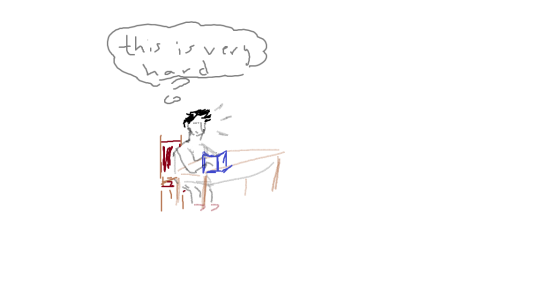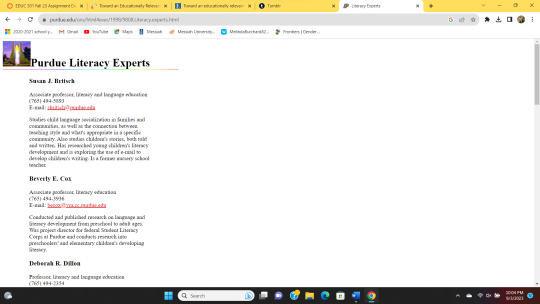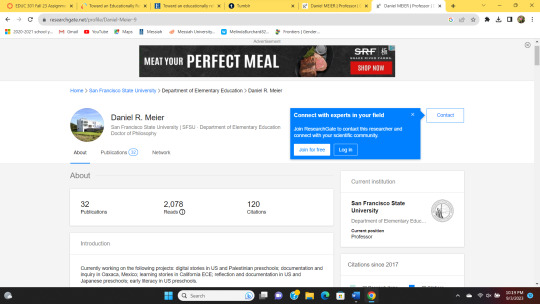Text
Readerly Exploration #7
December 4, 2023
Hanford (2018), “Hard Words: Why Aren’t Kids Being Taught to Read?”
Wills Lloyd (2021), “Smoke signals in reading education: What is with the spate of articles about changes in reading instruction?”
Big Takeaway
Hanford (2018), “Hard Words: Why Aren’t Kids Being Taught to Read?”
Educators are not aware of the science behind reading and how kids should be taught to read.
Wills Lloyd (2021), “Smoke signals in reading education: What is with the spate of articles about changes in reading instruction?”
Research brings the question should reading instruction consist of teaching fundamental skills or highly ordered skills
Nugget
Hanford (2018), “Hard Words: Why Aren’t Kids Being Taught to Read?”
Students who show signs of struggle in reading or literacy have a higher chance of dropping out of school, resulting in living in poverty or in the criminal justice system. Students who are unable to read by the end of third grade often struggle in literacy and remain stagnant in reading.
Wills Lloyd (2021), “Smoke signals in reading education: What is with the spate of articles about changes in reading instruction?”
Educators should start teaching reading in primary grades through decodables. Once children are able to decode and become more comfortable with reading and directing cues in literature it starts to become more natural for students to be able to read. This helps in both areas of fluency and comprehension.
Exploration
For my exploration I decided to explore the relationship through other people with the reading this week. My person of choice that I decided to view through the lens of my reading was my father. For the most part his parents did not prioritize schooling as much as my parents currently. My dad struggled in school mostly with reading and spelling. Since he was struggling in this area he did not feel adequate enough to be in school therefore did not push himself as hard but rather tried his best to pass. To this day my dad still struggles with phonics and often asks my mother , my sisters, or me to help him spell or double check his work. As a result to the struggling he remained stagnant in his reading level and struggled throughout school. For this I drew my dad at his desk at school trying to read say this is hard.

0 notes
Text
Readerly Exploration #6
November 27, 2023
Rasinski (2012), “Why Reading Fluency Should Be Hot!”
Applegate, Applegate & Modla (2011), “She's My Best Reader; She Just Can't Comprehend’: Studying the Relationship Between Fluency and Comprehension”
Big Takeaway
Rasinski (2012), “Why Reading Fluency Should Be Hot!” Reading Speed is emphasized as opposed to comprehension, which is dangerous when speaking in terms of literary standards.
Applegate, Applegate & Modla (2011), “She's My Best Reader; She Just Can't Comprehend’: Studying the Relationship Between Fluency and Comprehension” Comprehension is not based off of fluency.
Nugget
Rasinski (2012), “Why Reading Fluency Should Be Hot!”
As I was reading through this text something that stuck out to me was the school's emphasis on fluency as opposed to comprehension. Mentioned in the text is about scoring while fluency has increased, reading achievement scores have remained stagnant. While standards have increased the teaching of this has remained the same. With the level being tested should the teaching not also be hanged to match what the student is being tested on?
Applegate, Applegate & Modla (2011), “She's My Best Reader; She Just Can't Comprehend’: Studying the Relationship Between Fluency and Comprehension”
There is a lot of emphasis placed on reading a text fast and with accuracy that students aren’t able to save some energy for understanding what they are reading. Comprehension isn’t tested until later in their schooling and experience deficits because of their comprehension being low. Earlier in the semester we watched a girl read with very little fluency but high levels of comprehension. This student proved that fluency is not the key to comprehension.
Exploration
For my exploration this week I turned to music. The first thing that came to my mind as I was reading through these this week were artist that rap. The individuals speak so fast that we as listeners are unable to comprehend what they are saying at the moment. The song that first came to mind for me was "Drummer Boy" by Justin Bieber and Busta Rhymes. In this song, Busta Rhymes starts his verse nearly incomprehensible because of how quickly he is speaking. Being high in fluency does not mean high in comprehension too. As educators, we need to place value on comprehension just as much as fluency.

0 notes
Text
Readerly Exploration #5
November 6, 2023
Mesmer (2019), Chapter 4 "Letter Lessons"
Big Takeaway
Children are learning foundational knowledge about the alphabet and letters that will help develop their phonological awareness. The skills they learn in this lesson will help a student’s future literary success. Mesmer points out skills such as letter naming which can include vocabulary knowledge, print awareness, world knowledge, etc.
Nugget
There are transparent, opaque, and non-information names (pg.86). Researchers tested patterns finding direct and casual connections between letters and their sounds but only when children understood phonemic awareness. Without children hearing similarities in words they would not be able to use letter name information to help decipher. Ultimately, phonemic awareness activities directly focus on identifying, contrasting, and matching beginning sounds. This helps children learn letter sounds.
Exploration
This week we performed our phonics lesson demonstration. The opportunity to learn, experience, and build short lessons filled with different activities to promote letter learning was very helpful especially as we continue our field placements. For my exploration this week I decided to dive deeper into letter lessons since I have been conflicted with the curriculum in my placement when teaching letters. I found an interesting article that attacks "a letter a day". In this blog, she talks about the insight she is able to gain from beginning this new approach. She looks for these few things after the first 26 days
Can they quickly name the letter?
Can they quickly give the letter sound?
Are they able to easily give examples of words that begin with that sound?
Can they write the letter in both upper- and lowercase forms? (I’m not strict with this as I believe letter formation comes with time and maturation of fine motor skills, just want to see a close approximation at this point).
She uses this approach to see which students have a strong base knowledge of letters and can easily move into more heavily focused phonics instruction. I also spoke with some of my coworkers from last year about their approach to teaching phonics and letters of the alphabet. In speaking with these ladies they mentioned their approach is combined, attacking both letter name and sound at the same time. They teach writing uppercase letters before lowercase because of students show better dexterity as they get older and are able to form the smoother lines of the lowercase. By January students are beginning to decode words and write their own sentences easily.

0 notes
Text
Readerly Exploration #4
November 13, 2023
Silverman & Crandell (2011), “Vocabulary Practices in Prekindergarten and Kindergarten Classrooms”
Williams, et. al. (2009), “Word Study Instruction in the K-2 Classroom”
Big takeaways
Silverman & Crandell: Effective ways teachers can incorporate effective use of vocabulary in the classroom.
William, et. al.: Teachers effective ways of incorporating word work in the classroom.
Nugget
Silverman & Crandell: Word study done that has made a positive impact on children's learning and been proven effective in the classroom. Students should have direct contact and exposure to unfamiliar words.
William, et. al.: Children need to learn more than just words. Knowledge and concepts surrounding the related words is very important. Similar knowledge of patterns and sounds specific to words or letters makes it easy to apply later and build off the previous skills.
Exploration
This week for my exploration I was thinking of my field placement and the impact of families on children's development in literacy. As I was reading through these texts I thought of the parents of the students. In the articles, there was some vocabulary that stood out to me that would be a bit hard to comprehend if one was unfamiliar with the terms making this inaccessible to many with lower levels of education. Parents play a large role in the education of a child if topics are not being reaffirmed at home students are less likely to excel in that area. Repetition is an important part of learning and the process of remembering. A major theme that has stuck out to me in my placement is parental denial. By parent denial I mean families often believe their child does not need the extra instructional time. Lastly parental consent. Without consent from parents to pursue these types of reaffirming practices teachers are stuck on how to support students and are often subject to leaving them to fail.
2 notes
·
View notes
Text
Readerly Exploration #3
October 23, 2023
Mesmer (2019), Chapter 1, "Know the Code: Teacher’s Reference on How English Works”
Big Takeaways
Chapter 1: Gaining an understanding and recognizing the English system of writing.
Nugget
Something that stood out to me was how our speech sounds to those unfamiliar with the English language. We tend to blend words and sounds together when we are speaking making it hard for people to understand especially children. The text gave an interesting visual of how our language sounds making me reflect on my speech, especially as I begin working on literacy interventions.
Exploration
For my exploration this week I decided to work through the first chapter and write down important definitions that stood out and would be useful in the future as I begin teaching in the classroom.
Grapheme: a letter or group of letters that represent a phoneme.
Word: single element of meaning with a specific function.
Syllable: a word or word part with at least one vowel, made with one push of breath.
Onset/ rime: consonant sounds that come before a vowel.
Diphthongs: the sound changes quality in the middle of the sound (for example Noise, Shout).
Free morphemes: units that can stand independently.
Bound morphemes: word parts added to the free morphemes.
2 notes
·
View notes
Text
Readerly Exploration #2
October 9, 2023
Fisher, et. al. (2020), Chapter 2, “Whole-Class Reading Instruction: High-Level Support for Learning”
Sipe (2002), “Talking Back & Talking Over: Young Children’s Expressive Engagement During Read-Aloud Storybooks”
Big Takeaway
Fisher, et. al.
Balanced literacy in the classroom incorporates whole-class reading instruction. This benefits the skills and knowledge children need to develop.
Sipe
Engagement with books from children can be both expressive and performative. Students show this through actions physical or verbal expressions, children are then actively participating and engaged with the story.
Nugget
Fisher, et. al.
Hands-on learning is important to incorporate in the classroom. I think we do this often in math, especially with manipulatives for students to fully grasp concepts for visual and textile purposes. In literacy hands-on learning is found very little in the classroom. Students could benefit significantly from literacy manipulatives, especially because so many great options are available.
Sipe
I was able to fully comprehend how much literacy experiences impact children early in life. Knowing that reading to children is important especially with inflection to help them fully gain an understanding of words. This article definitely helped me to grasp how affected children are.
My Readerly Exploration
For my exploration, I went on a field trip to the Murray Library to investigate some of the literacy manipulatives that are available. After class on Friday, October 6, 2023, it left me with a huge impact on how we present books and literacy to children. Taking from my nugget from Fisher, et. al. (2020) I found many resources in the Murray library targeted at literacy in the classroom. These manipulatives pushed for letter comprehension and word comprehension. One great tool I found was sentence building tiles which can used for many activities in the older grade classrooms. Hands-on learning is important in the classroom to help solidify and fully grasp concepts. Students are better able to recall events or lessons because of the things done in class.

I forgot to take a picture of the manipulatives I used
I hope this screenshot from the Murray library of manipulatives will suffice.
2 notes
·
View notes
Text
Readerly Exploration #1
September 3, 2023
Cambourne (1995) "Toward an Educationally Relevant Theory of Literacy Learning"
Britsch & Meier (1999) "Building a Literacy Community: The Role of Literacy and Social Practice in Early Childhood Programs"
BIG TAKEAWAY
Cambourne
Creating an authentic literacy experience is very important in a child's education.
Britsch & Meier
Literacy ownership and inclusion practices of literacy
NUGGETS:
Cambourne
Finding that children are more apt or open to learning from an educator that they like or enjoy being around. This helps reduce stress/anxiety in the child.
Britsch & Meier
I read a disheartening quote that lay heavily on my mind throughout the reading and creating this blog. The quote was from a teacher who said "Independence is not a big deal because a lot of them have been pretty much on their own for a long time now" (Britsch & Meier, 1999, p. 210). This rested heavily because of the thought of a child being so neglected that it is normalized in the school.
My Readerly Exploration:
For my exploration, I chose to deep dive into the authors Britsch & Meier. Susan J. Britsch is a literacy expert at Purdue University. As an Associate professor for literacy and language education. She is involved in many top research articles such as 'But What Did They Learn?' Clearing Third Spaces in Virtual Dialogues with Children", "The Role of Children's Journals in Elementary School Science Activities", and many more. Daniel Meier works at the San Francisco State University as a decorated professor. He has an expertise in Early Childhood Education. Researched many scholarly projects and either aided in the writing or wrote himself. Researching these two decorated authors in the field of Early Childhood Education helped me understand the time and care put forth in their work. They provided well-researched documents creating respect and a thorough resource for many educators.


3 notes
·
View notes